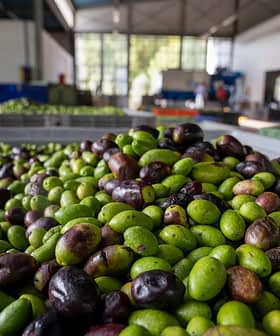Following a MedDiet with Extra Virgin Olive Oil Lowers Need for Medications in Diabetics
A major clinical study found that participants who followed a Mediterranean diet in which the main source of fat was extra virgin olive oil reduced the need to begin using diabetes medications by more than 20 percent compared with participants following a low-fat diet.
A study in Spain found that diabetics following a Mediterranean diet with extra virgin olive oil had a reduced need for new-onset glucose-lowering medications compared to a control group, after 3.2 years of follow-up. The study concluded that a Mediterranean diet with extra virgin olive oil may be an effective eating plan for managing type 2 diabetes by improving glycemic control.
A new study out of Spain has found that diabetics following a Mediterranean diet supplemented with extra virgin olive oil reduced the need to begin taking new-onset glucose-lowering medications, compared with a control group.
In a major clinical study, the University of the Basque Country and Spain’s Biomedical Research Center Consortium (Ciber) followed 3,230 diabetics for slightly more than three years.
A Mediterranean diet with extra virgin olive oil may be a useful eating plan in the management of persons with type 2 diabetes.
The diabetics were split into three groups. Participants in the first group followed a Mediterranean diet in which the main source of fat was extra virgin olive oil. Participants in the second group followed a Mediterranean diet in which the main fat source came from nuts. The control group followed a low-fat diet.
At the end of the 3.2‑year trial, participants in the first group reduced the need to begin using diabetes medications by 22 percent, compared with the control group.
See Also:Olive Oil Health News“Participants with diabetes who followed an energy-unrestricted Mediterranean diet with extra virgin olive oil had significantly lower rates of initiation of glucose-lowering medications,” Javier Basterra, a researcher at the University of Navarra and co-author of the study, told Olive Oil Times.
“So a Mediterranean diet with extra virgin olive oil may be a useful eating plan in the management of persons with type 2 diabetes,” he added.
However, participants in the second group experienced no significant difference in the need to begin using diabetes medications. The researchers attributed this difference between the two variations of the Mediterranean diet to each one’s ability to control levels of blood glucose in the body.
“The lower need for medication [either oral or injectable] with the Mediterranean diet pattern and extra virgin olive oil probably reflects the superior glycemic control that was obtained with this diet during the long follow-up of the study,” Fernando Arós, a researcher at Ciber and one of the study’s authors, said.
Glycemic control refers to the body’s ability to keep blood glucose levels at the concentration level typical of a person without diabetes, which is between 70 and 130 milligrams per deciliter. Basterra attributed the difference in levels of glycemic control among the three diets to their nutrient compositions.
“It is possible that there are differences between extra virgin olive oil and nuts,” Basterra said. “At the end of the trial, 22 percent of total calories in the MedDiet group were from extra virgin olive oil, whereas only eight percent of calories were from nuts in the MedDiet and nuts group.”
“The differences found with the low-fat diet were also likely due to the overall composition of the dietary pattern,” he added.
Other factors that determine the need for the use of diabetes medications, such as age, gender, level of physical fitness and pre-existing cardiovascular conditions, were all controlled for in the study. Adherence to the diet was also measured several times throughout the study by both self-reporting and blood tests.
This careful monitoring of adherence and other factors related to diabetes allowed the researchers to confidently link the importance of the Mediterranean diet and extra virgin olive oil consumption to a reduced need to begin taking diabetes medication.
“The dietary pattern has undoubtedly been the determinant,” Arós said.
Previous studies have found that consuming the Mediterranean diet supplemented with extra virgin olive oil lowers the risk of developing type 2 diabetes and reduces the incidence of gestational diabetes in pregnant women.
Basterra said that participants in the trial would continue to be monitored in order to determine whether adherence to the Mediterranean diet supplemented with extra virgin olive oil has any other long-term health impacts on diabetics.









